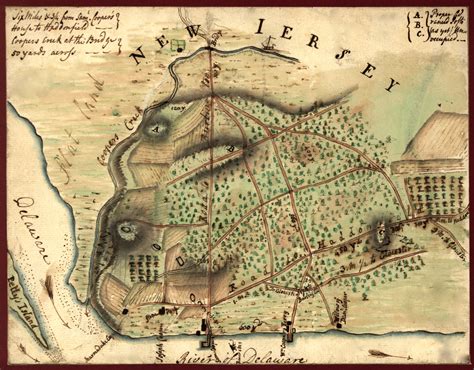When it comes to the staple crop of the New Jersey colony, the answer is surprisingly diverse and reflects the rich agricultural history of the region. From the earliest days of European settlement, farmers in New Jersey have cultivated a variety of crops to meet the needs of their growing communities.

The Early Days: Wheat and Corn as Cornerstones
In the early 1600s, Dutch and English colonists arrived in New Jersey and found a fertile land well-suited for agriculture. They quickly began to clear the land and plant crops, with wheat and corn emerging as the two most important staples.
- Wheat: Wheat was a highly prized crop in colonial New Jersey, as it could be used to make bread, flour, and other essential food products. The colony’s mild climate and rich soil were ideal for growing wheat, and it soon became a major export crop. In fact, by the mid-18th century, New Jersey was one of the leading wheat-producing colonies in British North America.
- Corn: Corn, also known as maize, was another staple crop for the New Jersey colonists. It was versatile and could be used for a variety of purposes, including food, animal feed, and even building materials. Corn was also well-suited to the colony’s climate and soil conditions, and it quickly became an important food source for both colonists and Native Americans.
The Rise of Diversification
As the New Jersey colony grew and prospered, its agricultural practices became more diverse. In addition to wheat and corn, farmers began to cultivate a variety of other crops, including:
- Fruits: New Jersey’s mild climate and fertile soil were also ideal for growing a variety of fruits, including apples, peaches, pears, and grapes. By the mid-18th century, New Jersey was a major fruit-producing colony, and its apples were particularly renowned for their quality.
- Vegetables: Farmers in New Jersey also grew a wide variety of vegetables, including potatoes, tomatoes, cucumbers, and beans. These vegetables were an important source of nutrients for the colony’s growing population.
- Dairy: Dairy farming also played an important role in the New Jersey colony. Farmers raised cattle for milk, butter, and cheese, which were essential food products for the colonists.
The Legacy of Agricultural Diversity
The agricultural diversity of the New Jersey colony has had a lasting impact on the state’s economy and culture. Today, New Jersey is still a major producer of a variety of agricultural products, including fruits, vegetables, dairy products, and nursery stock. The state’s rich agricultural heritage is reflected in its many farms, farmers’ markets, and agricultural festivals.
Conclusion
The staple crop of the New Jersey colony was not a single crop, but rather a diverse range of crops that reflected the colony’s rich agricultural resources. From the early days of wheat and corn to the later diversification of fruits, vegetables, and dairy, the New Jersey colony’s agricultural practices have played a vital role in its history and development.
